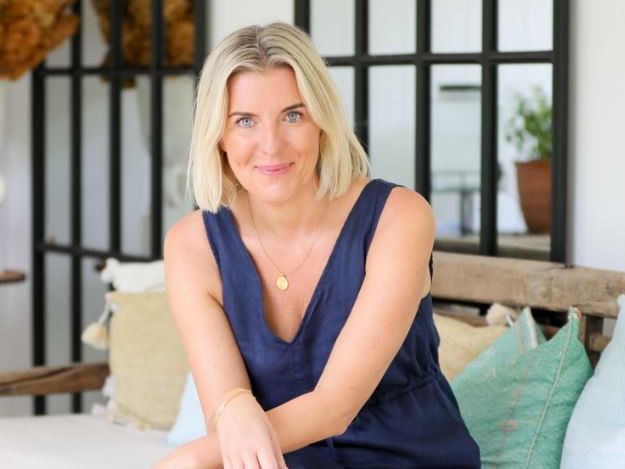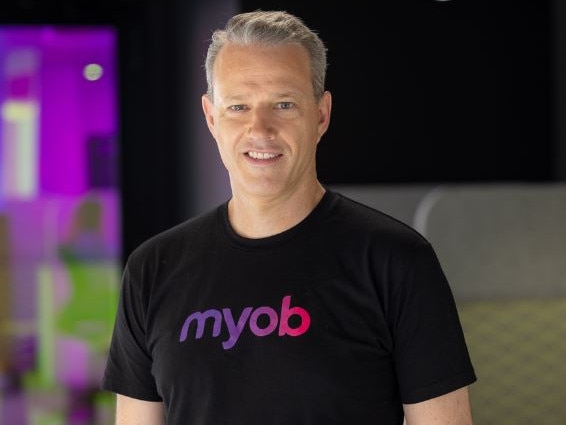‘Unseen workload’: Hidden reality facing more than 1.6 million Aussie workers
It sounds like a dream to most 9-5 workers, but there’s a tough hidden reality behind the way more than 1.6 million Aussies are working right now.
Careers
Don't miss out on the headlines from Careers. Followed categories will be added to My News.
For many traditional office workers the idea of ditching their 9-5 job and becoming their own boss sounds like a dream.
Setting your own hours? Yes please.
Not having an overbearing manager breathing down your neck? Say no more.
Being free of that co-worker who insists on microwaving fish at 11am? Sign me up right now.
There are currently more than 1.6 million sole traders in Australia.
And, while it is true that running your own business can be extremely rewarding and offer flexibility that you can’t get working for someone else, that doesn’t mean it is without its challenges.
New research from accounting app Solo by MYOB has found that a whopping 77 per cent of sole traders feel lonely or isolated working as their own boss, with over half stating they have less time for relationships or self care because of admin pressures.
Solo by MYOB is a business admin app designed exclusively for sole operators in Australia, helping with things like invoicing, payments, expense tracking and ATO-ready recordkeeping.
The research, which includes insights from 1059 sole traders, reveals the hidden costs of being your own boss, from the emotional strain, admin overload, irregular income and long hours.
Scientist, mental health advocate and sole trader, Dr Matt Agnew, told news.com.au that one of the major misconceptions people have about starting your own business is that it is “super easy and you can take as much time off as you want”.

MORE: 9 signs you’re burnt out from work
While it is true that working for yourself means you can set your schedule, learning how to balance your days when all the work relies on you is not as simple as many people may think.
“You don’t want to work so little that you’re no longer financially stable, but you don’t want to work so much that you rapidly burn yourself out,” he said.
“Being in control of your schedule sounds amazing but it’s not without its challenges.”
Dr Agnew pointed out that a conventional 9-5 role often follows a firm structure: clocking in, taking a coffee break, having lunch around midday and clocking out in the afternoon.
“That structure doesn’t exist as a sole trader, and so if you’re not setting your schedule with some sort of daily and weekly structure in mind it’s very easy to slip into working an unsustainable amount of hours,” he said.
Of the sole traders surveyed, over one quarter spend more than 10 hours a week – more than a full workday – on admin tasks alone, outside of their core business duties.
The admin tasks the majority of sole traders find to be the most time consuming are taxation, invoicing and accounting.
A massive 88 per cent work evenings just so they can catch up on these admin tasks, limiting time for personal relationships and hobbies.
These Australians are also prone to high rates of burnout, with 59 per cent report feeling mentally and physically exhausted.
Camilla Thompson knows all about just how difficult juggling the different aspects of being a sole trader can be.
The 48-year-old lives in NSW’s Avoca Beach and is a wellness professional with three businesses.

MORE: 5 signs your workplace is toxic – and what to do about it
She started her first business in London when she was 26 and brought it over to Australia.
However, she also knows what the 9-5 grind is like, having gone back to more traditional jobs for a period of time before becoming her own boss again.
Speaking to news.com.au, Ms Thompson said the biggest difference between the ways of working is that, when you are a business owner, you are “responsible for everything”.
“In a traditional job, you have a set role, a team to rely on, and, usually, a boss to guide you. As a sole trader, there’s no built-in support system – you’re the CEO, admin assistant, finance manager, and IT department all in one,” she said.
“The to-do list never really ends, and without clear boundaries, work can creep into every part of your life.”
There is also an aspect of financial uncertainty that comes with running your own business.
“Some months are amazing; others, not so much. Unlike a 9-5, there’s no steady pay cheque, super, sick leave, or annual leave, which can be stressful,” Ms Thompson said.
However, there are also “huge positives”, with the wellness professional saying the freedom and flexibility when becoming your own boss are “unmatched”.
She can set her own hours, choose to do work she loves and build a business that aligns with her values.
“No more endless meetings or office politics. There’s also unlimited growth potential,” Ms Thompson said.
“In a 9-5, your income and career progression are largely determined by someone else. As a sole trader, the sky’s the limit – I get to decide how and when I scale.”
Perhaps most importantly, she gets to do work that is truly meaningful to her, describing the sense of purpose she gets from her work as “priceless”.
For wedding celebrant, Rebecca Page, since quitting the 9-5 and starting her own business she is happier than she has “ever been” in her work life.
Through her business The Love Page, which she runs from the NSW Central Coast, she creates fun, heartfelt wedding ceremonies for couples on their big day.

Coming from a journalism and communications background, the 38-year-old has always loved meeting people, asking questions and sharing their stories.
“After years of working for large organisations, I realised I wanted a career that gave me more personal fulfilment and the freedom to shape my own work,” she told news.com.au.
“Running my own business as a celebrant gave me that opportunity – plus, I love the joy, emotions, and magic of weddings.
“There’s nothing more satisfying than seeing the direct impact of my work on a couple’s big day and to know that I will always deliver a great service without someone telling me what to do.”
However, Ms Page also noted there is a huge “unseen workload” when you work for yourself.
The increased workload and her chosen profession also means that she misses out on a lot of social events, which can be tough.
Since most weddings are on weekends, there are a lot of upcoming key events within her friendship group that she already knows she will have to miss out on.
“I have to really intentionally block out weekends every now and then so that I can get a bit of balance. But that’s all just part of the trade-off to work a job I absolutely love,” Ms Page said.
According to the report, younger generations are more likely to agree that they have less time for relationships or self care, with 68 per cent of Gen Z and 67 per cent of Millennials agreeing, compared to 47 per cent of Gen X and 38 per cent of Baby Boomers.
More than half of those surveyed also said that financial constraints have prevented them from taking a holiday and 16 per cent said fear of falling behind on admin tasks has prevented them from taking a holiday.
The extra work and admin that comes along with being your own boss can also have an impact on people’s love lives, with two in five single sole traders saying their work has stopped them from pursuing a relationship or has led to the end of a relationship.
Despite the challenges, Ms Page wouldn’t consider going back to a regular 9-5 job working for someone else
“Being a sole trader is risky, and it’s not for everyone. But the thought of going back to not being my own boss is a greater risk for me,” she said.
“The joy I get from this work, the freedom to do things my way, and the ability to create something that’s completely mine, knowing I’ve worked hard to build this business beats the allure of a steady pay cheque.”

For those considering starting their own business, the 38-year-old said they should “be ready to hustle”.
“Find mentors, get good systems in place early, adopt technologies to help in areas you don’t love, be comfortable with uncertainty, and never underestimate the power of backing yourself, it’s worth every bit,” she said.
MYOB CEO, Paul Robson, said running a business solo is both exciting and demanding, coming with many rewards and challenges.
Speaking to news.com.au, he said that, unlike employees working in a traditional office role, sole operators are “responsible for everything”, without having the support of a wider team.
This means that burnout is a real risk facing a lot of sole traders.
“That said, sole traders are some of the most resilient and resourceful business owners in Australia, and with the right support and tools in place, they can thrive while maintaining a better work-life balance,” he said.
Mr Robson said smart technology and automation is one of the most effective ways to ease the burden on these workers.
“By streamlining everyday tasks like invoicing, expense tracking, and compliance, technology can help sole traders reduce admin time and free up capacity for business growth, personal development, or simply taking a well-earned break,” he said.
Originally published as ‘Unseen workload’: Hidden reality facing more than 1.6 million Aussie workers





